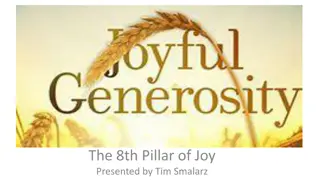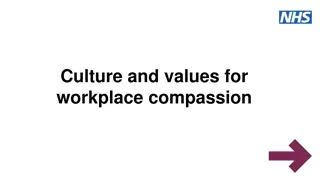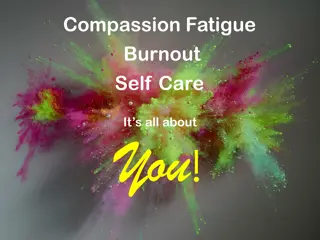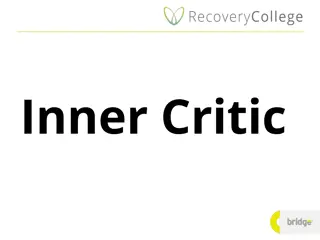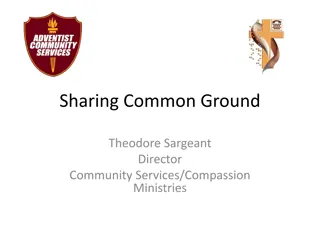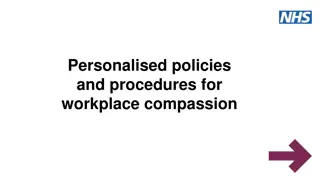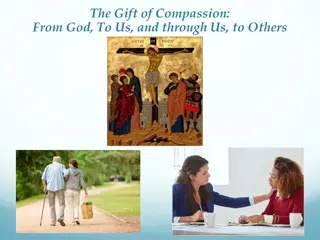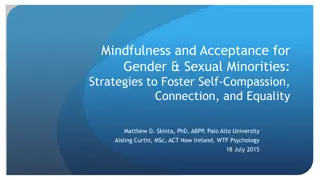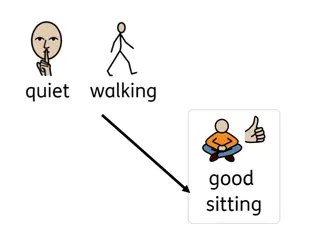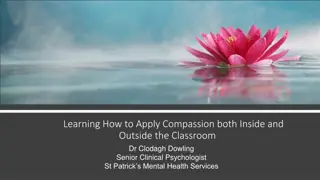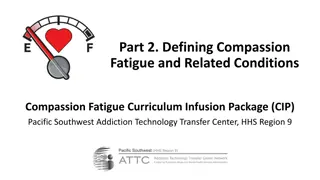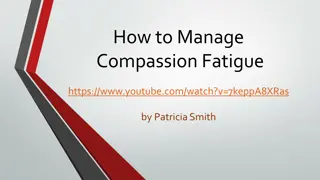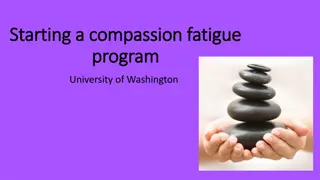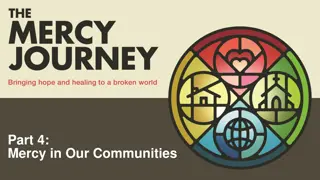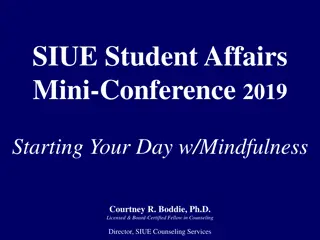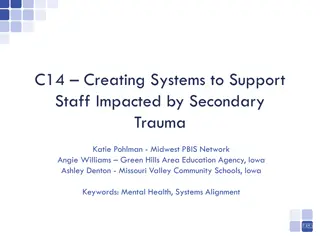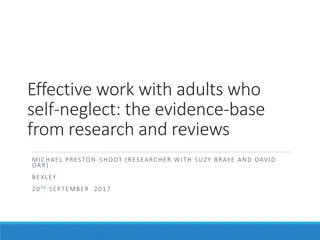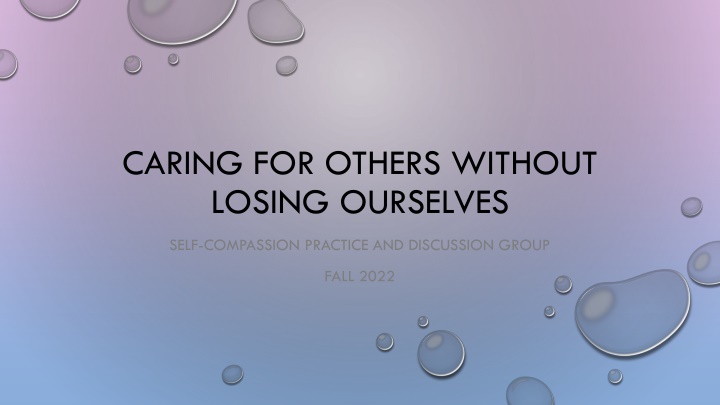
Cultivating Care and Compassion: Nurturing Ourselves and Others
Delve into the journey of self-compassion and empathy in a supportive space, exploring ways to care for ourselves and others without losing our essence. Understand the nuances of empathy, compassion, and common reactions to suffering while nurturing a compassionate mindset.
Download Presentation

Please find below an Image/Link to download the presentation.
The content on the website is provided AS IS for your information and personal use only. It may not be sold, licensed, or shared on other websites without obtaining consent from the author. If you encounter any issues during the download, it is possible that the publisher has removed the file from their server.
You are allowed to download the files provided on this website for personal or commercial use, subject to the condition that they are used lawfully. All files are the property of their respective owners.
The content on the website is provided AS IS for your information and personal use only. It may not be sold, licensed, or shared on other websites without obtaining consent from the author.
E N D
Presentation Transcript
CARING FOR OTHERS WITHOUT LOSING OURSELVES SELF-COMPASSION PRACTICE AND DISCUSSION GROUP FALL 2022
REMINDERS The goal of self-compassion practice is to treat ourselves like we would treat a good friend. The components of self-compassion are mindfulness, common humanity, and mindfulness. Self-compassion invites us to use encouragement rather than judgment as motivation.
HOW CAN WE CULTIVATE CARE FOR OURSELVES AND OTHERS?
Concern for the well-being of others is instilled in us from a young age And is valued in religious traditions Care for others is an important part of our human programming CARE FOR OTHERS Working for the good of the community is important for survival Our brains may be wired to help us understand and respond to others But the hype about mirror neurons is outpacing the science https://www.ncbi.nlm.nih.gov/pmc/articles/PMC3898692/ https://www.ncbi.nlm.nih.gov/pmc/articles/PMC3898692/
EMPATHY Empathy is an emotional skill set that allows us to understand what someone is experiencing and to reflect back that understanding. Cognitive empathy Perspective-taking Affective empathy Emotional attunement with another person s experience Bren Brown Atlas of the Heart
EMPATHY COMPASSION Recognizing the suffering of another = empathy Being able to hold the suffering of another with a desire to alleviate it = compassion Compassion fatigue is typically empathy fatigue
COMMON REACTIONS TO OTHERS SUFFERING PITY AVOIDANCE REDIRECTING Gee, that s too bad. It s not so bad. It s ______ fault. Poor you. We all love you. Let s fix this.
HOLDING SUFFERING Many of these less-helpful reactions arise because we want to avoid feeling the distress of the other person Practicing so that we recognize our own suffering and offer ourselves kindness Helps us offer that to others
A WORD ABOUT BUDDHIST PRACTICE Buddhism teaches practitioners to cultivate the four brahmaviharas Metta = lovingkindness Karuna = compassion Mudita = sympathetic joy Upekkha = equanimity In these practices one typically chooses phrases to focus on Neff and Germer s lovingkindness practices are rooted in this tradition The phrases are not affirmations but are a way of cultivating beneficial mental habits
PRACTICE LOVING-KINDNESS (P. 65) AND GIVING AND RECEIVING COMPASSION (P. 112) May I/You/We Be Happy May I/You/We Be Healthy May I/You/We Be Peaceful May I/You/We Live With Ease (FINDING YOUR OWN PHRASES SEE PAGE 71)
DISCUSSION FACILITATOR = STUDENT WHOSE LAST NAME IS CLOSEST TO A DISCUSSION QUESTIONS: Have others ever reacted to your suffering with pity, avoidance, or redirecting? What impact did that have on you? Have you ever reacted to others with pity, avoidance, or redirecting? How did they react? If there is someone compassionate in your life, how do they show this in their interactions with you? If you ve ever experienced compassion fatigue or burnout, what have you tried that helps you?


